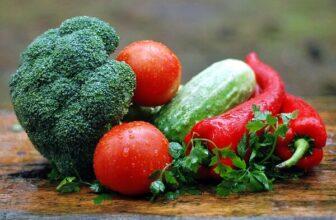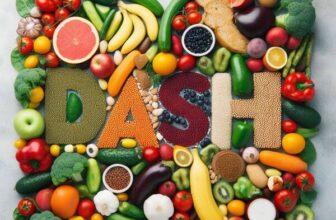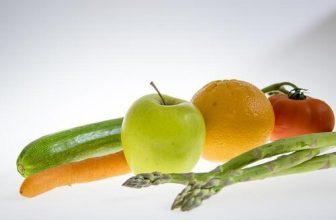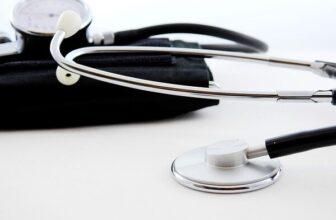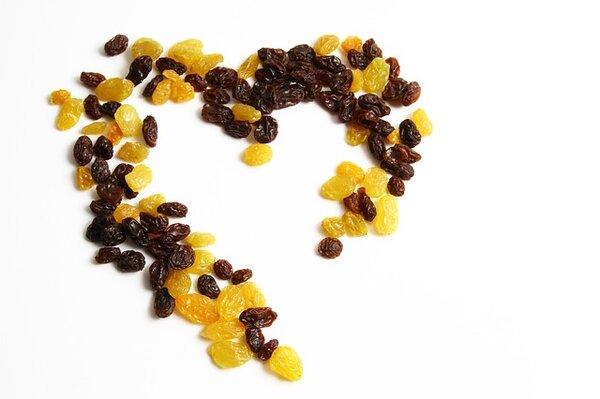
(Note: Some of the links in this post are affiliate links, and we will be compensated when you make a purchase by clicking through our links at no additional cost to you.)
Potassium is an electrolyte that you need to help keep the right balance of fluids in your body. It plays a role in controlling your blood pressure by relaxing the walls of the blood vessels as well as maintaining the function and health of several body organs. Potassium helps to undo some of sodium’s effect on your blood pressure and translate into fewer heart attacks, strokes, and deaths from heart disease. Many researchers believe that part of the high blood pressure problem caused by too much salt (which contains sodium) is made worse by too little dietary potassium.
The average Western diet delivers too much sodium and not enough potassium. The recommended intake of potassium for adolescents and adults is 4,700 mg/day and most American adults get barely half of the recommended amount. Recommended intakes for potassium for children 1 to 3 years of age is 3,000 mg/day, 4 to 8 years of age is 3,800 mg/day, and 9 to 13 years of age is 4,500 mg/day.
Gross deficiencies of potassium, however, are rare except in cases of prolonged vomiting, diarrhea, or use of “potassium-depleting” diuretic drugs. People taking one of these drugs are often advised by their physician to take supplemental potassium. Prescription amounts of potassium provide more than the amounts sold over the counter but not more than the amount found in several pieces of fruit.
Potassium is found in:
- fresh fruits
- vegetables
- whole grains
- dairy products
- meat, poultry and fish
Some foods high in potassium are also high in calories. So when you are watching your weight, eat more potassium rich foods that are low in calories and carbohydrates. Some good examples include broccoli, water chestnuts, spinach, and other leafy greens.
Foods such as fruits, vegetables and low-fat dairy products that are high in potassium and calcium, when used along with the DASH Diet, can help you lower your blood pressure. Such diets are rich in potassium, calcium, magnesium and protein, and low in total fat, saturated fat and cholesterol.
>>> Discover The Top DASH Diet Cookbooks To Help Lower Your Blood Pressure
Here Are Several Foods High In Potassium:
Food Item | Portion Size | Potassium mg |
|---|---|---|
| seedless raisins | 1 cup | 1,086 |
| baked potato | 1 medium | 1,081 |
| cooked lima beans | 1 cup | 955 |
| plantains | 1 medium | 893 |
| cooked spinach | 1 cup | 839 |
| papaya | 1 | 781 |
| cooked pinto beans | 1 cup | 746 |
| cooked lentils | 1 cup | 731 |
| canned prune juice | 1 cup | 707 |
| baked sweet potato | 1 medium | 694 |
| oat bran | 1 cup | 532 |
| tomato | 1 cup | 528 |
| cooked broccoli | 1 cup | 457 |
| cucumber | 1 large | 442 |
| cantaloupe | 1 cup | 427 |
| banana | 1 medium | 442 |
| roasted turkey meat | 1 cup | 417 |
| skim milk | 1 cup | 382 |
| 1 raw carrots | 1 cup | 352 |
| pear | 1 medium | 333 |
Is It Possible To Have Too Much Potassium?
High potassium intake (several hundred milligrams at one time in pill form) can produce stomach irritation. People using potassium-sparing drugs should avoid using potassium chloride-containing products, such as Morton Salt Substitute®, No Salt®, Lite Salt®, and others and should not take potassium supplements, except under the supervision of a physician. Even eating several pieces of fruit each day can sometimes cause problems for people taking potassium-sparing drugs, due to the high potassium content of fruit.
People with kidney failure or kidney disorders should not take potassium supplements, except under careful medical supervision. This is because as kidneys become less efficient or able to get rid of potassium from your blood, excessive potassium may build up.
Certain medications may interact with potassium. If you are currently on any medications, please be sure to consult your nurse, pharmacist or physician prior to taking excess potassium.
Potassium Is Only One Component Of A Well-Rounded Plan To Lower Your Blood Pressure
Even though potassium can help lower your blood pressure and undo some of sodium’s effect on your blood pressure, eating more potassium should be combined with your efforts to break up with that excess salt and develop other healthy eating and lifestyle habits.
The only true way of ascertaining whether you have high blood pressure or not is by having it checked or monitored regularly using a home blood pressure monitor and tracking it with a blood pressure log. This is a painless procedure, and every adult should have their blood pressure checked regularly since your blood pressure can change over time. This way you are more likely to catch a change before it becomes dangerous. Ask your health care provider how often you need to check it.
>>> Discover The Most Accurate Blood Pressure Monitor For Home Use
All information provided by HighBloodPressureHub.com is of a general nature and is furnished for educational purposes only. You should not rely on this information as a substitute for, nor does it replace, professional medical advice, diagnosis, or treatment. If you have any concerns or questions about your health, you should always consult with a physician or other health-care professional. Do not disregard, avoid or delay obtaining medical or health related advice from your health-care professional because of something you may have read on this site. YOU ARE ENCOURAGED TO CONFER WITH YOUR PHYSICIAN OR HEALTHCARE PROVIDER WITH REGARD TO INFORMATION CONTAINED ON OR THROUGH THIS WEB SITE. AFTER READING ARTICLES OR OTHER CONTENT FROM THIS WEB SITE, YOU ARE ENCOURAGED TO REVIEW THE INFORMATION CAREFULLY WITH YOUR PROFESSIONAL HEALTHCARE PROVIDER. The use of any information provided on this site is solely at your own risk.




